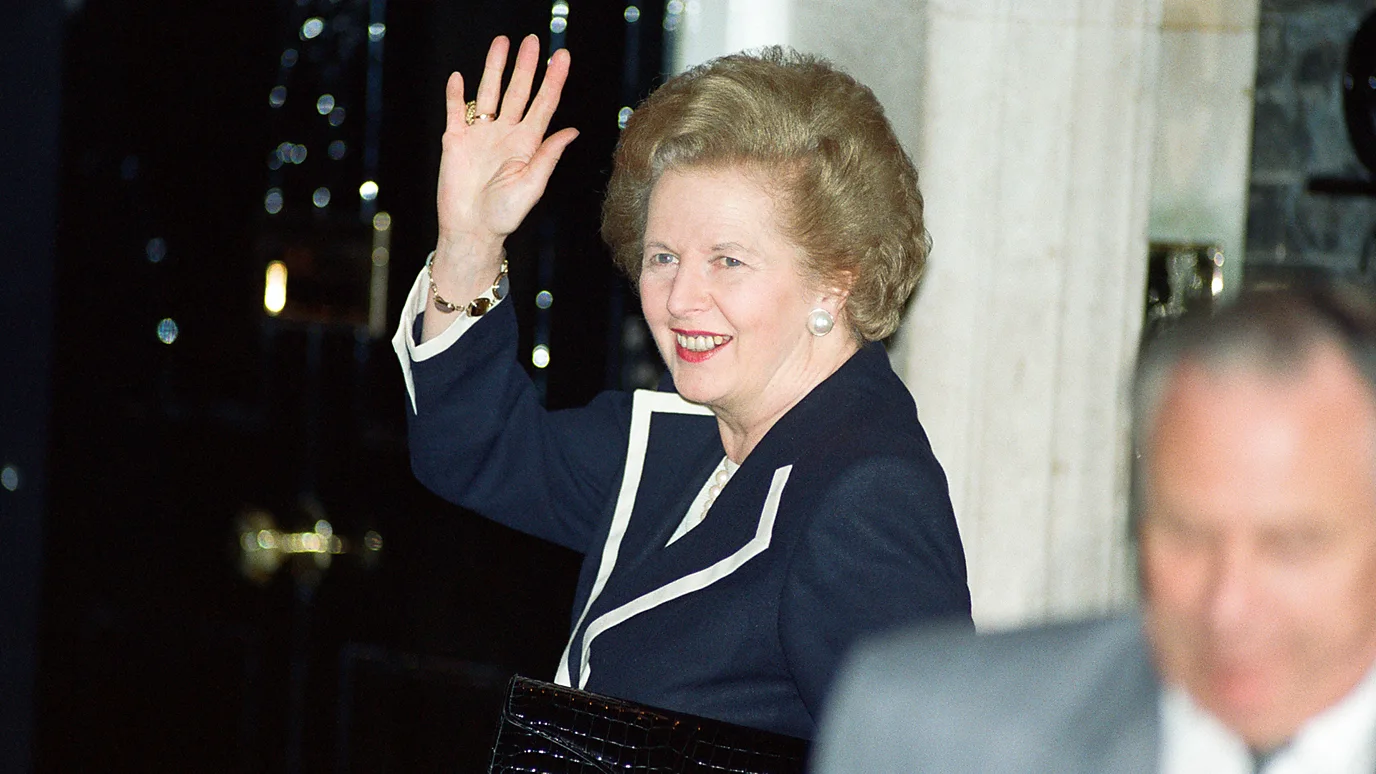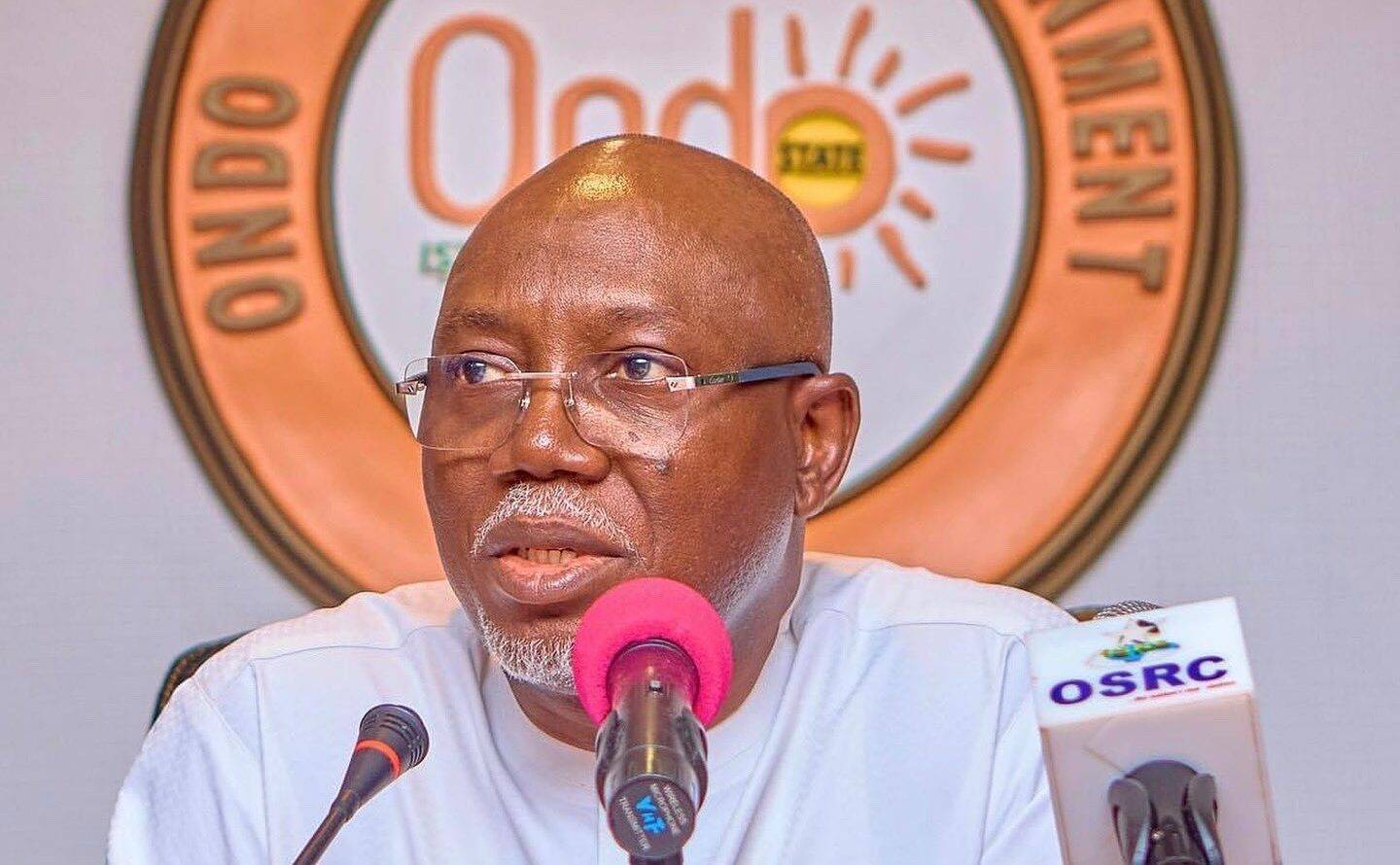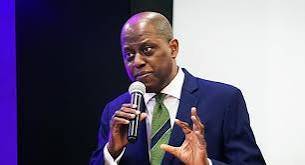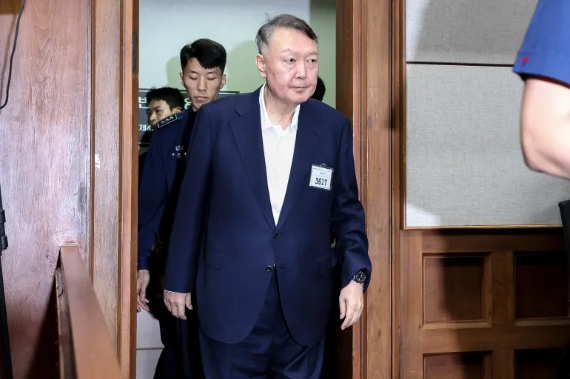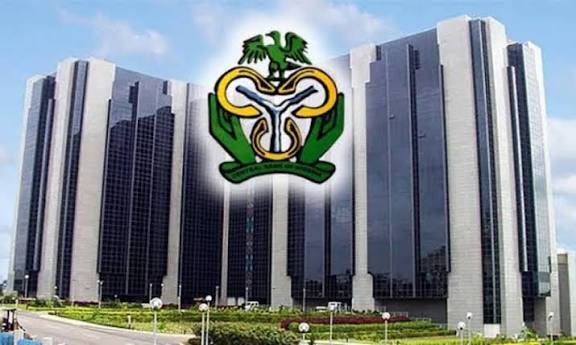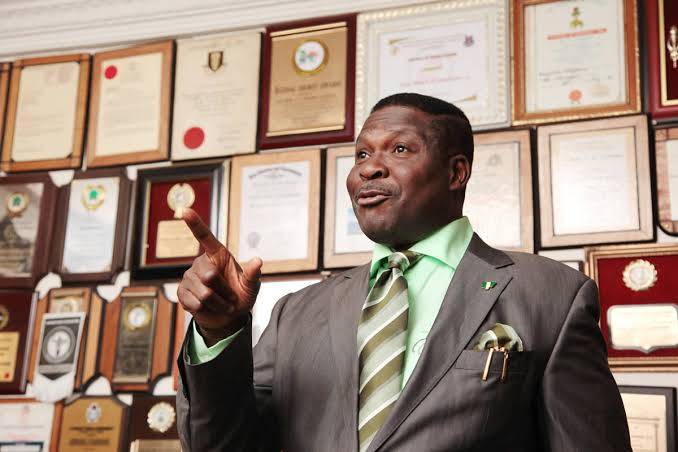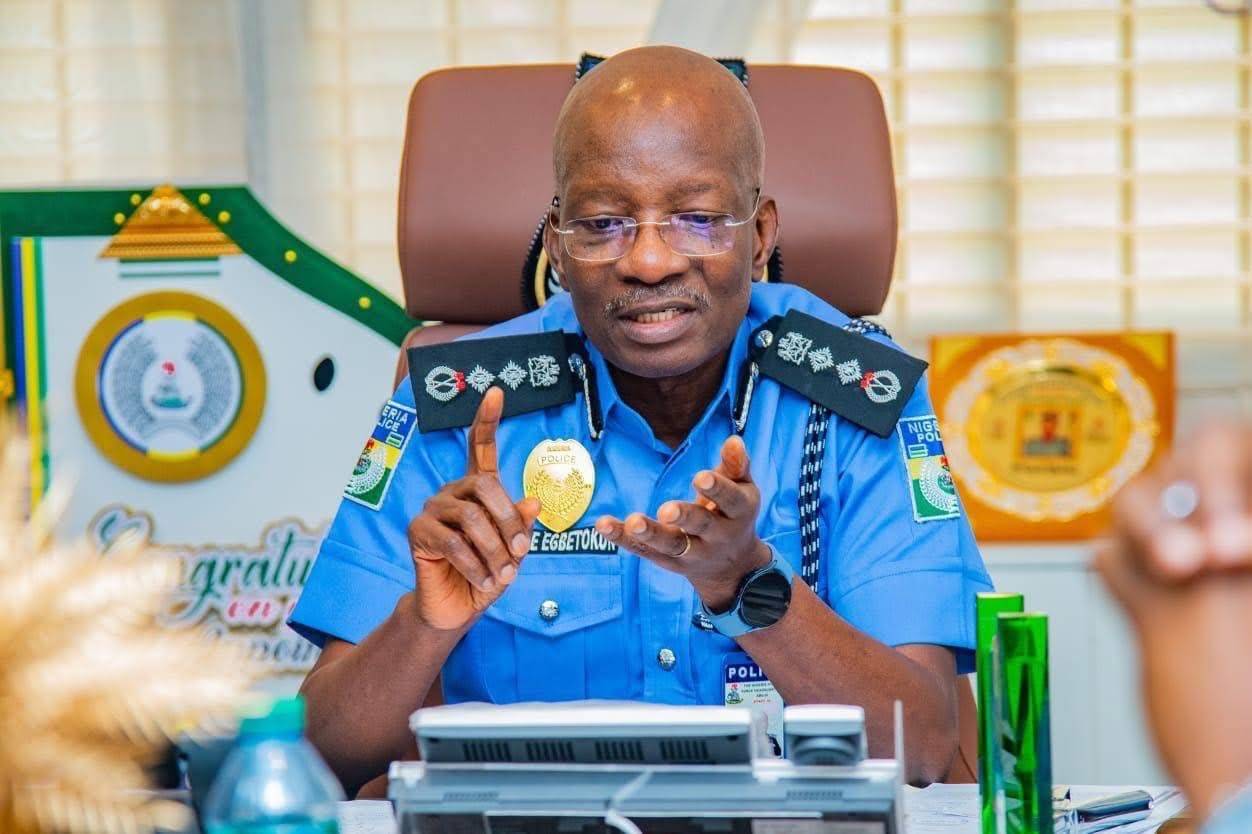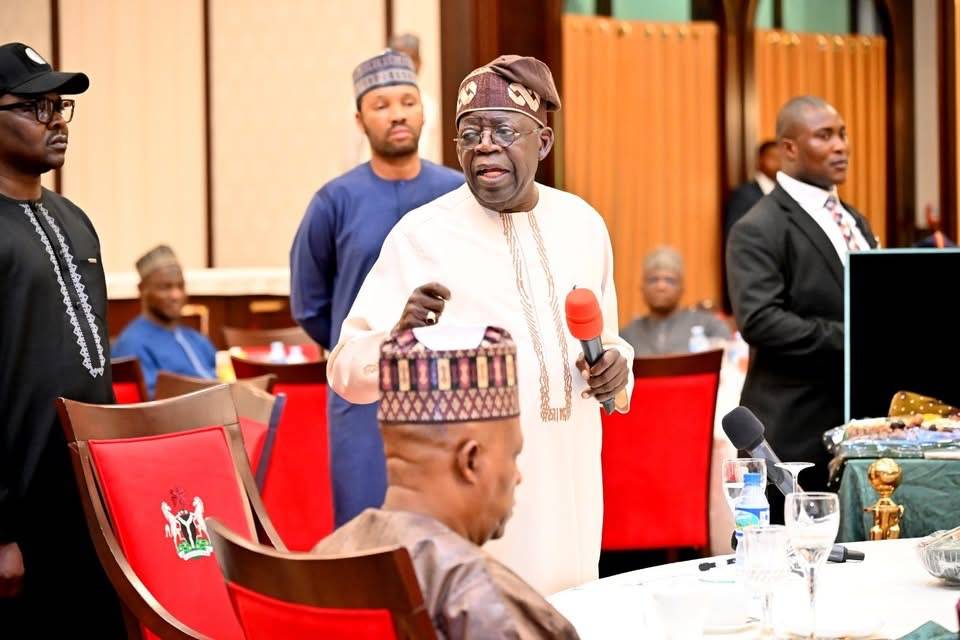In November 1990, the UK’s prime minister made her tearful departure from 10 Downing Street. She was ousted by her own party, having been weakened by an unlikely enemy.
As Margaret Thatcher stood on the doorstep of the British prime minister’s official residence for a final time, she faced the full glare of the world’s media. “We’re leaving Downing Street for the last time after 11.5 wonderful years, and we’re happy to leave the UK in a very much better state than when we came here,” she said. Thatcher looked anything but happy. Less than a week earlier, on 22 November 1990, she had resigned as head of the ruling Conservative Party after failing to win enough support in a leadership contest to carry on with authority. Close to tears, she waved goodbye, then headed for the familiar journey to Buckingham Palace for one last audience with Queen Elizabeth II.
Ironically, it was her own increasingly regal management of her party that led it to turn against her.
As Britain’s first ever female prime minister, Thatcher had led her party to victory in three general elections. Few politicians have wielded such power during their time in office or inspired such strong feelings, both for and against. She fought and won countless battles against the British establishment, the trade unions, the opposition Labour Party, and most fiercely, her own cabinet. But now she had lost the ultimate fight with her party colleagues, and, in defeat, she felt deeply betrayed. It is a story of hubris, hurt feelings and some very British sporting metaphors.
One of her ministers, Chris Patten, told the BBC in 2005 that Thatcher recognised “people need to be a bit scared of you if you’re going to get your own way”. Patten said that she had an “extraordinary style of summarising the conclusions of meetings at the beginning and then challenging the assembled company to say whether they thought she might be wrong”. He added: “There was always that slight sense of the anaconda in the chandelier if you got things wrong.”
Thatcher said in 2005 that as a trained scientist, her approach was to first gather the information rigorously then deliver her verdict. “I think sometimes the prime minister should be intimidating. There’s not much point being a weak, floppy thing in the chair, is there?”
When Thatcher won a rare third term at the 1987 general election, one of her first actions was to announce the introduction of the controversial community charge, or “poll tax”, a local council levy which required every resident to play a flat rate regardless of income. In March 1990, the levy sparked riots in London’s Trafalgar Square, and Tory MPs were worried that the tax could cost them their seats. The prime minister’s leadership was called into question for the first time. However, it was the issue of the UK’s relationship with Europe that would bring about her eventual downfall.
No one would have predicted that Sir Geoffrey Howe would play such a crucial role in dethroning the Iron Lady. The MP was known for being mild-mannered: in 1978, a Labour MP likened a rhetorical offensive by Sir Geoffrey to “being savaged by a dead sheep”. He admitted to Newsnight in 2005: “My manner of argument is one of tenacious repetition. I don’t like shouting at people, whereas I was shouted at to some extent. I think that can be quite irritating if you’re a quiet, consistent badger. That doesn’t always please the person who prefers badger baiting.”
But Thatcher’s own underestimation of Sir Geoffrey would prove fatal. He would deliver a brutally devastating speech now often cited as one of the greatest in British parliamentary history.
Although Sir Geoffrey had been a close ally of Thatcher in her early years in power, their relationship had soured. When she reshuffled her cabinet in July 1989, he was replaced in his role as foreign secretary by John Major, the up-and-coming party star. Cabinet colleague Kenneth Baker recalled to the BBC in 2019: “When she virtually sacked Geoffrey, she made him the deputy prime minister. That is a non-job, like the vice presidency of the United States… He knew he was being sidelined.”
On 30 October 1990, Thatcher unleashed one of her most infamous soundbites in parliament, letting rip against her counterparts in Europe. In response to calls from Brussels for greater central control, she declared defiantly, “No, no, no!” That was too much for Sir Geoffrey, who resigned two days later. Thatcher remained bullish, and on 12 November at the annual Lord Mayor’s Banquet made a characteristically combative speech. Deploying a series of cricket metaphors, she said: “I’m still at the crease, though the bowling’s been pretty hostile of late.
And in case anyone doubted it, can I assure you there will be no ducking the bouncers, no stonewalling, no playing for time? The bowling’s going to get hit all round the ground. That’s my style.”
‘I fight on; I fight to win’
The next day in parliament, Sir Geoffrey responded with his killer parting shot. Using another cricket analogy to describe Thatcher’s attitude to British negotiations in Europe, he said: “It is rather like sending your opening batsmen to the crease, only to find… that their bats have been broken before the game by the team captain.” He continued: “The time has come for others to consider their own response to the tragic conflict of loyalties with which I have myself wrestled for perhaps too long.” This was seen as an invitation for an old adversary of Thatcher to emerge from political exile and make his power play.
Enter the man colloquially known as Tarzan. Michael Heseltine had resigned four years earlier as defence secretary in protest that Thatcher was ignoring his opinions. He acquired his nickname in 1976 when he grabbed the ceremonial mace in the House of Commons and waved it above his head. Since his departure from office, he had spent his time plotting his return. With Heseltine joining the fray, a leadership contest began.
On the day of the first round of voting, Thatcher opted to travel to Paris to join fellow world leaders at a summit marking the end of the Cold War, rather than staying in London to schmooze the doubters. Although she defeated Heseltine in the first round by 204 votes to 152, enough MPs went against her to prevent an outright victory. With the contest moving to a second round, the prime minister’s authority within her party was now sinking rapidly.
Despite pressure for Thatcher to think again about contesting the second ballot, upon her return to London she pledged: “I fight on; I fight to win.” Would anyone have the guts to say to her face that she should step aside? Instead of trying to rally the troops together in one place, she chose to summon her ministers individually. As they waited outside her office, they chatted among themselves, and most agreed what needed to happen. Three years later, Thatcher revisited this painful memory, telling the BBC how, one after another, her ministers delivered the message: “Of course, if you wish to stand, I’ll support you. But I don’t think you can win. And I think, therefore, you should let other people stand – and stand down.” She chose to sleep on the decision; her sleep schedule was said famously to be just four hours a night.
Some of her ministers were also wiping away tears
At the following morning’s cabinet meeting, she announced that she had decided to leave. It was an emotional scene, according to Caroline Slocock, a senior civil servant who was in the room. She told the BBC in 2019 that Thatcher – “just one woman surrounded by men” – began to read a short statement. “As soon she started it, she started to cry and then to sob and she was really struggling to get the words out,” said Slocock. Some of her ministers were also wiping away tears. Chris Patten later noted: “I think we all know that quite a lot of crocodiles keep a handkerchief handy.”
Thatcher pledged her support to John Major, who saw off the challenges in the second ballot from Heseltine and Douglas Hurd to become the new Conservative leader on 27 November. A day later, Thatcher waved her final farewell to Downing Street. After her audience with the Queen, she and her husband Denis travelled to their new home in a gated community in Dulwich, south London.
She insisted she would be back in parliament in the morning, albeit with a longer commute, as work was the only thing she knew. Although she told reporters that she would give Major her full support, in the following years as a “very good backseat driver” she would make life very difficult for him.
For the rest of her life, Thatcher never shook off that sense of betrayal. As she told the BBC in 1993: “It was treachery with a smile on its face. Perhaps that was the worst thing of all.”
BBC


